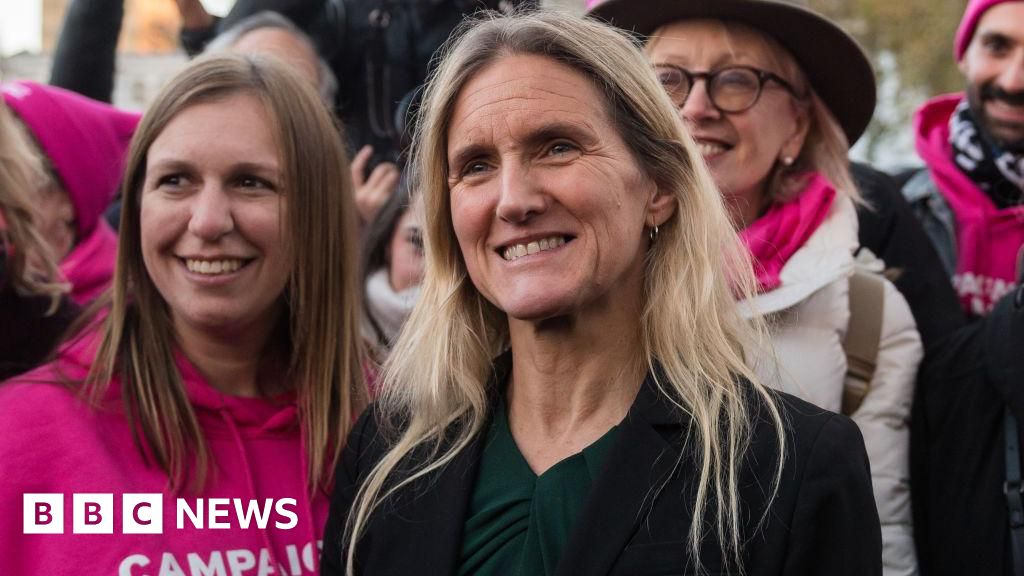On 1 February, Kyle Aaron Reese saw a Facebook post from an old school friend urgently looking for someone to adopt a dog named Benny. Benny’s owners had just been deported after an immigration raid in New York City; faced with high costs and uncertainty, they hadn’t been able to take Benny with them. Reese did not have to stare long at the photo of the jowly bulldog’s silly smile before jumping in his car to go pick him up.
“Everything about what I learned about that dog made me want him more,” said Reese, who is 39 and lives in Brooklyn.
Donald Trump’s mass deportation campaign started just days after his inauguration. Officers from federal law enforcement agencies have carried out raids in New York, Chicago, Los Angeles, Phoenix, Philadelphia, San Diego, Denver, Miami, Atlanta and other large cities, stoking fears in communities across the country. More than 8,000 immigrants have been arrested, NBC reported.
Undocumented people are staying home from work and school, drawing up plans in case they are separated from their children, and tracking confirmed Immigration and Customs Enforcement (Ice) raids on social media. Some are also worrying about what will happen to family pets.

Enlace Latino, a public service journalism outlet for Latino immigrant communities based in North Carolina, published a piece shortly after Trump took office titled: “How can I plan for my pets’ future if I am detained or deported?” Steps include finding a trusted caregiver who agrees to watch after the pet, setting aside money for the pet’s care, and writing detailed notes about the pet’s breed, diet, medications, vaccinations and veterinarian.
Benny’s owners, who declined to comment, left Benny with a close family friend, who used Facebook to permanently place him with Reese.
“It’s almost like an underground thing,” Reese said of local efforts to re-home pets after Ice raids. “There’s no network in place, because we didn’t realize this was an issue. But people are really stepping up.”
No one knows how many pets have been separated from their families due to Ice raids. A representative for the American Society for the Prevention of Cruelty to Animals wrote in an email that “it’s too soon to identify any specific trends” in animal shelter admissions due to immigration raids.
Flatbush Cats, a Brooklyn non-profit that traps, neuters and releases stray cats to reduce the population of street cats, also runs an adoption program; Reese is a volunteer there.
“We’re hearing heartbreaking word-of-mouth stories from one neighbor to the next,” said Will Zweigart, the group’s founder. “This morning, one of our volunteers was crying her heart out on the way to the clinic with a cat that belongs to some neighbors she knows are being displaced by a landlord who was creating unfavorable living conditions for them because he knows they’re undocumented and not in a position to fight back.” They made the painful decision to re-home the cat while they look for safe housing.
When established immigrant advocate organizations and local-level rapid response groups are focused on preventing detentions, deportations and family separation, concerns about adopting out animals might not seem like a priority. Still, leaving a pet behind can be devastating, and knowing it will be properly looked after may provide some comfort to immigrant owners. “Pets are family,” Zweigard said.

Naomi Pardasie, 28, is a naturalized US citizen, but her husband is not. In January, five Ice agents came to their apartment door. The couple did not let them in, and the agents waited outside for 45 minutes. Rattled by the encounter, Pardasie’s husband stayed home from his construction job for two weeks.
The couple decided to voluntarily head back to Trinidad, where they’re from, in April. They’re bringing their cats – Oatmeal, Olive, Onyx and Zoboomafoo – with them.
“They’ve been with us since they were born,” Pardasie, who works as a housekeeper and bartender, said. “I’ve known their moms, their dads, their moms’ moms and dads’ dads. I watched them come into this world, and it would be hard to just leave them here.” She is currently raising money to pay for their airfare and required vet visits.
“Animals come into our lives for a reason,” Pardasie said. “It’s scary to know that people who don’t have the money to get their animals into another country have to leave them behind.”
The US’s animal shelters are full. Last October, Animal Care Centers of New York, the city’s largest shelter, announced that it would no longer accept dog surrenders due to overcrowding.
“Animal shelters should be a lifeline for communities in times of crisis, but with chronic overcrowding, they’re often unavailable when they’re needed most,” Zweigart said. “The same thing happened in Los Angeles with the fires – the animals had to be transported somewhere else because local shelters were full. This highlights where we’re headed: as more and more people are displaced for different reasons, we’re not able to take care of animals.”
Reese, who adopted Benny the bulldog, says that when institutions fail, communities can step in. “When people are deported, what happens to their animals is such a small part of the bigger issue,” he said. “But if we can take care of the animals, that’s something we can do when we feel like we have little control over everything else.”

 German (DE)
German (DE)  English (US)
English (US)  Spanish (ES)
Spanish (ES)  French (FR)
French (FR)  Hindi (IN)
Hindi (IN)  Italian (IT)
Italian (IT)  Russian (RU)
Russian (RU)  4 hours ago
4 hours ago























Comments